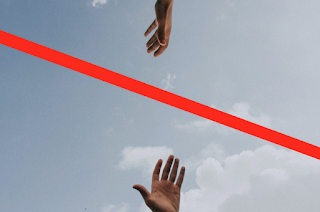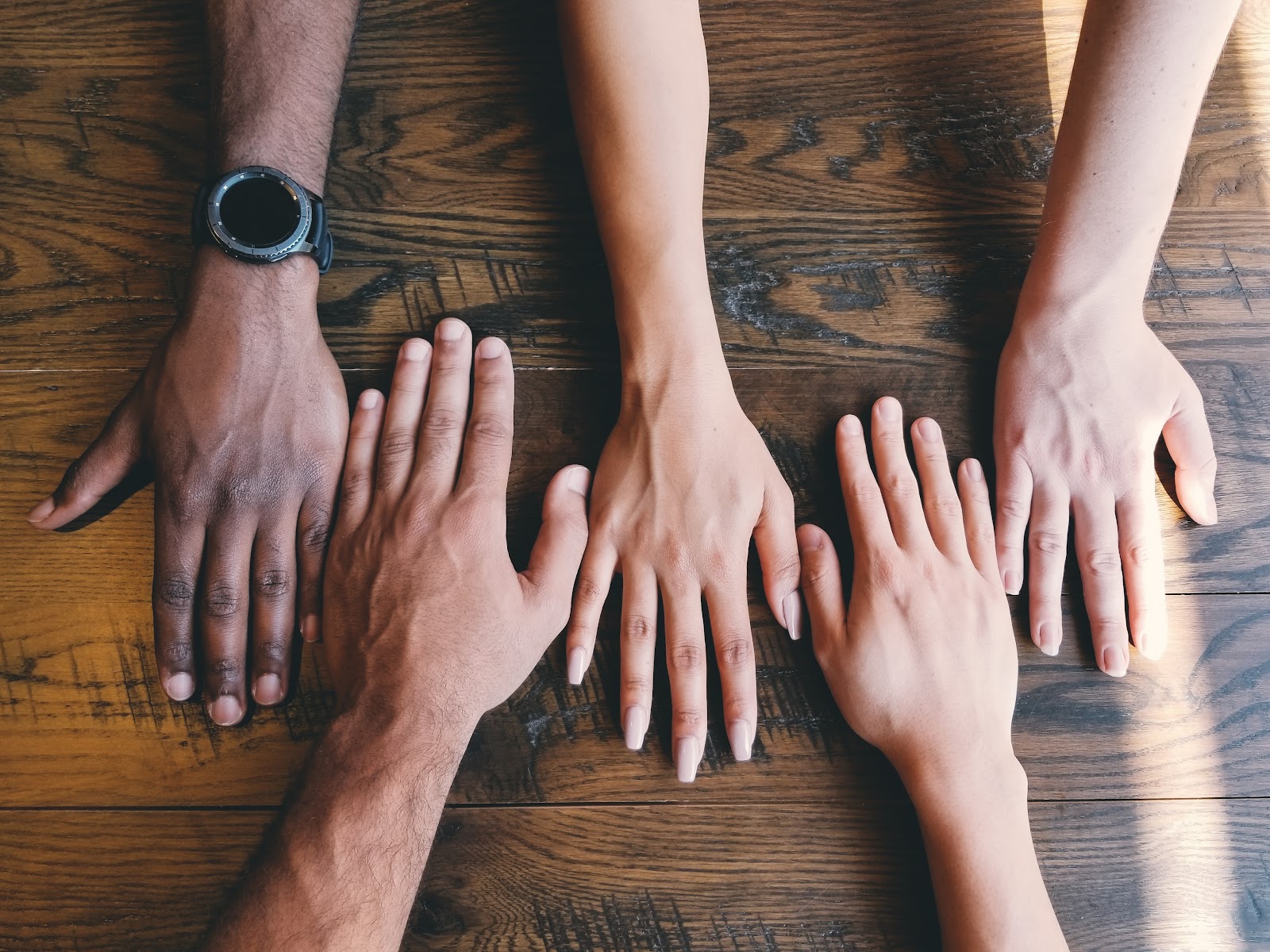...
Note: I am available for consultation work, curriculum development, trainings, etc.. I enjoy partnering with organizations on development of more accurate understandings of social reality.
I can be reached by email at taylor.geomatics@gmail.com
Please consider donating to support this work. I am disabled, financially struggling, and am forced by existing social structures into producing content like this for free. I hope those with means and privilege will eventually shift priorities toward increased support for lived experience content generation and expertise sharing. Donations are never required and always appreciated. Donate Link: https://ko-fi.com/socialrealitylab
...
I've been kicking around this idea for months. It's taken various forms and I can acknowledge it's a deeply unpleasant topic and may not even be true. I nonetheless have years of experience as a peer support community member making me ask the question. And I'm not convinced that it's not true.
What if the current resources on offer, the whole suite of them, sometimes still aren't the answer. Sometimes doesn't mean never. It's quite clear we're helping some people some of the time. This can range from 'helped a bit" to 'helped a lot" to "completely life-changing and life saving". Sometimes.
Other times though, subsets of the traumatized community go years or decades without being helped. And maybe one reason why is that the help doesn't exist. At least not yet. At least not under existing social and mental health theory structures.
Does this mean they are doomed to total hopelessness forever? No. The idea of "doesn't exist now" only means not now. Not under current conditions. And even "not under any likely future scenario under given conditions". A space station orbiting Jupiter is "possible", but won't happen in our lifetimes. So, when we say not possible, we're saying it similar to the Jupiter space station. We could do it. We sure as heck aren't.
I like to call this theorized (and I think very real) population the "Won't Be Helped", and I don't see much written about them ever. The most common response I see to a currently unhelped person is... "you haven't tried the right resource yet. Keep going. One is it out there!"
And that response begs the question ... is it actually true?
Does a resource exist for every person in need? Is their only and sole problem that they haven't been connected yet? It that true for every single unhelped person? I don't think so.
I think a substantial number of individuals are "Won't Be Helped". We keep sending them from resource to resource, and none of it is working. That's the reality.
The answer is - figure out what they need and build it. Ideally by asking them what they need and empowering them to co-build it with whatever resources can been mustered. They might not know what they need yet, and that itself can be part of the goal - helping or equipping them to even figure that out.
One place the above actions somewhat do seem to happen are what I call "beyond-the-system" resources. The "Won't Be Helped" with similar issues find and build resources for each other. It's usually extremely removed from any pre-existing established thing (since, by definition, those places aren't helping). Often the reactions to this have been hostility rather than celebration. Rather than being supported, such places are more often than not attacked. These peer communities "don't know what they're doing". They're not following established systems (and why would they - the established systems aren't helping them).
These peer communities are typically extremely low resource, even by mental health standards. And they are the absolute last bastion of hope. If even these resources don't exist, the "Won't Be Helped" are, well and truly, not helped. Not anywhere. Not ever.
You may say "build it yourself", and I wonder whether anyone who has ever offered that advice has ever tried. Especially after first considering what privilege they may have that the person they're talking to doesn't.
A "Won't Be Helped" person, by definition, has no effective help. Not ever for this. They are likely impaired by extreme distress. This is not some young, full of energy, go-getter. It's typically a beleaguered, kicked down, formerly and presently abused person. It's the last person who should be tasked with, solely and on their own, generating a community of support for themselves from scratch. It's a grossly unreasonable, and arguably wholly unfeasible ask, to make of many of the "Won't Be Helped".
And the takeaway point is this. Assuming you believe me that this population exists, one of the worst things to tell them is that help does exist. While certainly well-meaning, it's straight up gaslighting. Denying their reality and actively invalidating it.
What they need, in my estimation, is the opposite. The mental health community needs to acknowledge this population. Validate that they are real. Yes, in some sense, validate that under current circumstance there is no current hope. And get to work changing things. Build support for this community. Build an Office of Identifying And Finding Ways to Helping The Won't Be Helped, and invite these people to participate. Give them a place to go. One they clearly don't already have.
If we acknowledge that the help simply does not exist, it becomes much harder to justify continuing to not provide it.
If we insist the help does exist (in the times where it doesn't), it makes it much harder to make the case to change anything. It makes us, as is often the case, blame the "Won't Be Helped" as not trying hard enough. It's telling them to pull themselves up the bootstraps while simultaneously justifying not doing anything in the way of changing things.
I don't know what evidence is needed. I have hundreds of reports of peer interactions saying this is real. It feels sad that I have to prove this population exists (I think it does). I'm willing to prove it. Often the evidence is dismissed and I don't know what to do about that. Calling my evidence not worthy of evidence is whole other blog post that can and does need to be written.
We need to help the Unhelped. Guide the ones who can be helped by existing resource to them. And start cataloguing the stories of the ones who can't, and do something different so we can start to fix that.
I'm happy to work with any organizations, groups, or individuals who want to work within this reality. Acknowledging the reality of this is not confining the "Won't Be Helped" to forever hopelessness. It is, I would argue, the exact opposite.
As Bernice King, daughter of Martin Luther King jr., once remarked...
"Being truthful about the state of our nation and world does not equal losing hope. Hope sees truth and still believes in better. That which dismisses or does not seek truth, but grins, saying "It will be okay," is naiveté, not hope."
People are not okay. Help is not always just around the corner. I'd be happy to be proved wrong but I'm not seeing it and I'm tired of being told I simply must be wrong. Maybe instead of working so hard to prove me wrong, challenge your views and start to ask if I'm actually right on this one.
I'm sorry if it's a hard thing to admit and I don't know what to say to ease this report. But telling people that help exists when it doesn't is not actually help at all. It's the opposite. Real help, and real hope, starts with truth - even the hard and ugly ones.
Maybe I'm wrong though. What do I know. It's just the life I myself have led for an entire decade. And I have hundreds of comments like this from my peers...
"All I have in life is the ability to keep existing. Everything else is out of reach."
Maybe stop telling them they're wrong. Maybe acknowledge that they're right. And maybe instead of denying it, start campaigning to build somewhere to fix it, so I can finally send these people to somewhere that will actually help them.
Concluding Thought - What Can Be Done?
Here is one final note toward the positive, in case this post left you feeling defeated.
I will reference that I titled this post "even though it could". One thing I didn't mention yet - in addition to sending people off to other supposed resources, many individuals feel disempowered from doing anything themselves. It's the notion of "there's nothing I can do". That's not technically true. There's plenty you could do. Much of it might come at various personal cost, some of it severe. And much of it is uncertain and low likelihood of success.
What I can offer is the "not nothing approach". When you encounter a "Won't Be Helped", do anything that isn't nothing. Get creative. A single email to a peer. A letter to a professional group in protest of the status quo. Even just not invalidating them is a sort of, if not help, at least not causing further hurt. Make a phone call advocating (with their authentic approval) for them instead of making them do it themselves. If we do nothing, nothing changes. If we something, anything that's not nothing, it's at least a chance at change. Enough not nothing can snowball into quite a bit of something.
...
About the Author
My personal efforts to build some semblance of own or community care occurs at the Peer Voices Network project. We're just getting started, and maybe it will show a vision of what could actually help people like me. Maybe it will one day lead to access to something that would feel like actual help. The reality still feels more like non-help than anything else at the moment.
The hopeful vision (as Bernice Kings knows we are capable of) believes that it is, clearly, theoretically feasible to do better. Genuine and real listening and true coproduction from lived experience perspectives would be a start. It's yet one more thing that's still mostly not currently happening. Not in the reality I inhabit. We'll either get there or we won't. It's a choice. And it's not up to me to the make that choice. It's up to my fellow humans to choose to do so.
...


